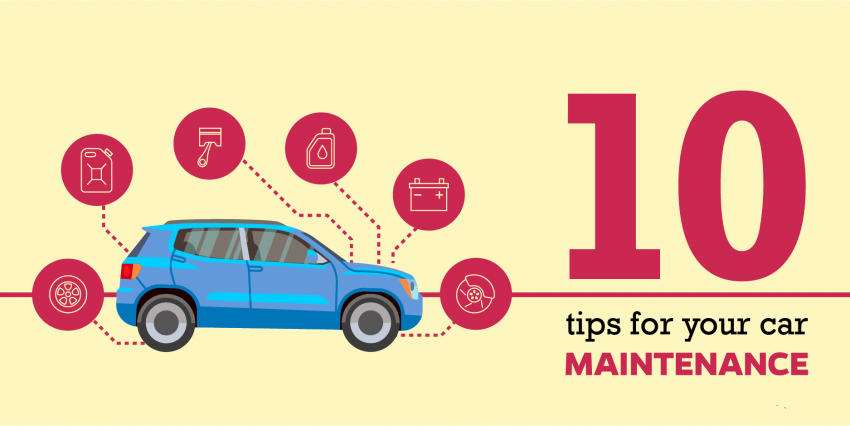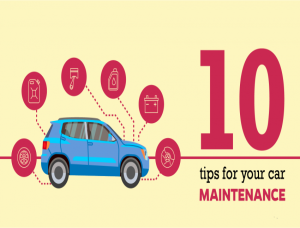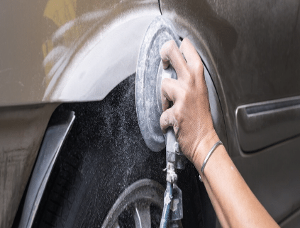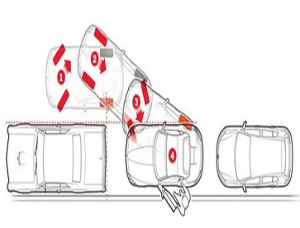10 Car Care and Maintenance Tips To Minimize Car Shop Visits
- Car Tips,
- Mar 09, 2021

Owning a car can sometimes feel like it’s just a black hole for money. There are a lot of checks and maintenance you need to carry out regularly, and all of them can end up costing money. However, the cost (financially and emotionally) of not doing these regular care items can be a lot higher.
The best thing to do is to prioritise the upkeep of your vehicle. By keeping it in tip-top condition you can minimise the risk of major, expensive problems cropping up, giving you a nasty surprise. At worst, these issues can cause an accident. At best, they leave you out of pocket and cause an inconvenience.
In this article we’ll guide you through what you need to do to keep your car on the road and out the shop as much as possible.
1. Keep A Proper Maintenance Schedule
The first step is to have a schedule for all of your maintenance and care concerns. This must include all the points below and should be set out in a way that you know you’ll refer to regularly and tick off properly. If that means setting reminders in your calendar on your smartphone or putting up a schedule on the wall in your garage, it’s up to you. Find a way to remember your schedule and stick to it.
2. Rotate And Inspect Your Tyres
Tyres are always a big expense, especially if your car takes larger sized ones or you opt for those with a specific tread pattern. Something like run-flat tyres are great for safety reasons, but they can set you back a pretty penny when it comes to replacing one or more. That’s why it’s essential that you rotate your tyres according to their particular best practices. When you purchase a vehicle or new tyres, ask what the manufacturer's recommendations are for rotations and stick to their suggestions.
It’s also important to inspect the tyres for damage or wear regularly. While doing this, also check their pressure and make sure you are sticking to manufacturer specs when you do so.
3. Stick To The Recommended Oil Change Intervals
The oil in your car plays a massive role in keeping the engine lubricated and preventing damage from wear and overheating. If you want something expensive and possibly disastrous to go wrong, ignore your oil change warning light. Or if your car doesn’t have a warning light, make sure you test your oil regularly and take action when it’s dirty.
For regular motor oil, this is usually between 5000 and 7000 miles, and for synthetic motor oil, it can go up to 15 000 miles.
4. Don’t Ignore Your Brakes
Your brake pads and discs are essential parts for your safety when driving. Any shudders, squeals or grinding when you hit the brakes (hard or soft) should immediately be investigated. If the pads or discs need replacing and you leave it too long, you could end up with major damage to the rest of the brake setup and the wheels. Your brakes could also fail, which can be incredibly dangerous.
5. Wash Your Car Thoroughly and Regularly
Washing your car regularly won’t just keep it looking good, it protects it from long-term damage from corrosion and parts getting clogged up with dirt. That’s why you need to give it a thorough clean done inside and out, and underneath, on a regular basis. Some dirt, like salt water from sea spray can cause rust and corrosion, which weakens parts of the car. Mud and harder dirt can cause blockages in moving parts in the undercarriage, which can cause mechanical damage if parts have to work harder to move.
6. Monitor All Fluid Levels Visually
Most modern cars have sensors to tell you when the oil, radiator, brake fluid and even the windshield washer fluid is low. However, it’s best to not rely on these sensors to tell you in time, because you never know if the sensor is faulty! Rather monitor these levels once a month yourself and top up once you see a drop.
7. Drive Your Car Regularly
Cars are designed to be driven regularly. If you have a car that sits in the garage, waiting for your next road trip or for winter weather, it’s important that you take it for a regular drive. Even if you’re not in need of your car for long stretches, it needs you. Make sure you start the engine at least once a week and drive it at least once a month.
8. Don’t Skip The Recommended Services
The reason manufacturers recommend a regular service interval is not to make money off of you. It’s to try and ensure they catch any potential problems before they become bigger and potentially cause an accident. When you skip services or push them out to longer than the recommended intervals, you risk a much bigger and far more expensive problem. Unless you’re experienced with looking after cars yourself, it’s always best to let an expert do the service and you do the smaller, at-home maintenance and checks.
9. Use Good-Quality Parts
When replacing, fixing or topping up anything on your car, always go for high-quality parts. You don’t always have to go for the manufacturer’s parts—although you will have peace of mind that they’re completely compatible and won’t void your warranty or affect your insurance. If you go for parts that don’t come from, or are recommended, by the manufacturer, it’s important that you at least buy from a brand you can trust. Cheaper knockoffs or pirate parts are more likely to break quickly or not work very well and might cause more damage in the long run.
10. Listen To Your Car
Finally, you know what your car is supposed to sound like. If it starts making a noise that’s unusual, it’s definitely best to investigate the cause. The earlier you notice the change, the quicker you can identify a potential problem before it gets too bad. It’s never a good idea to wait and see if it gets worse or goes away. Chances are, it won’t.
If there’s one main takeaway with car maintenance and care it’s that prevention is better than cure and acting fast can save you a fortune.














